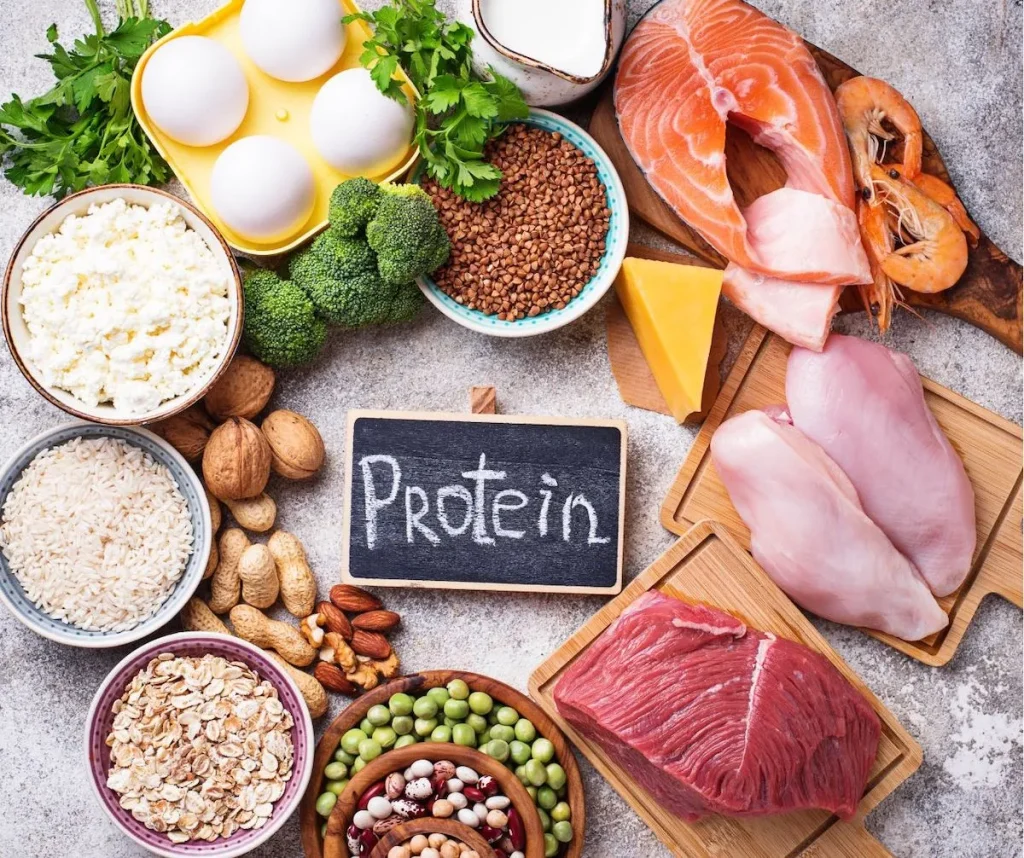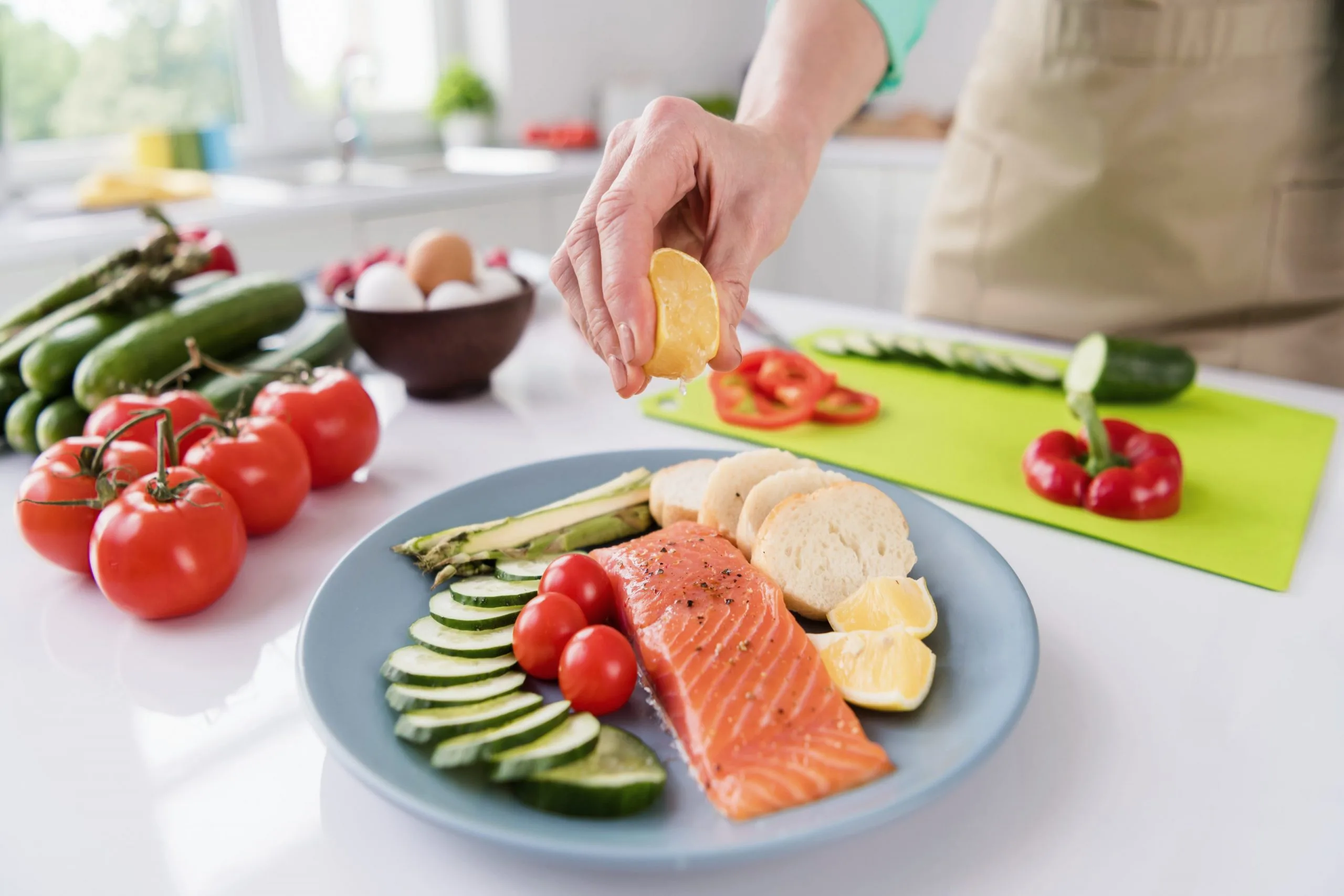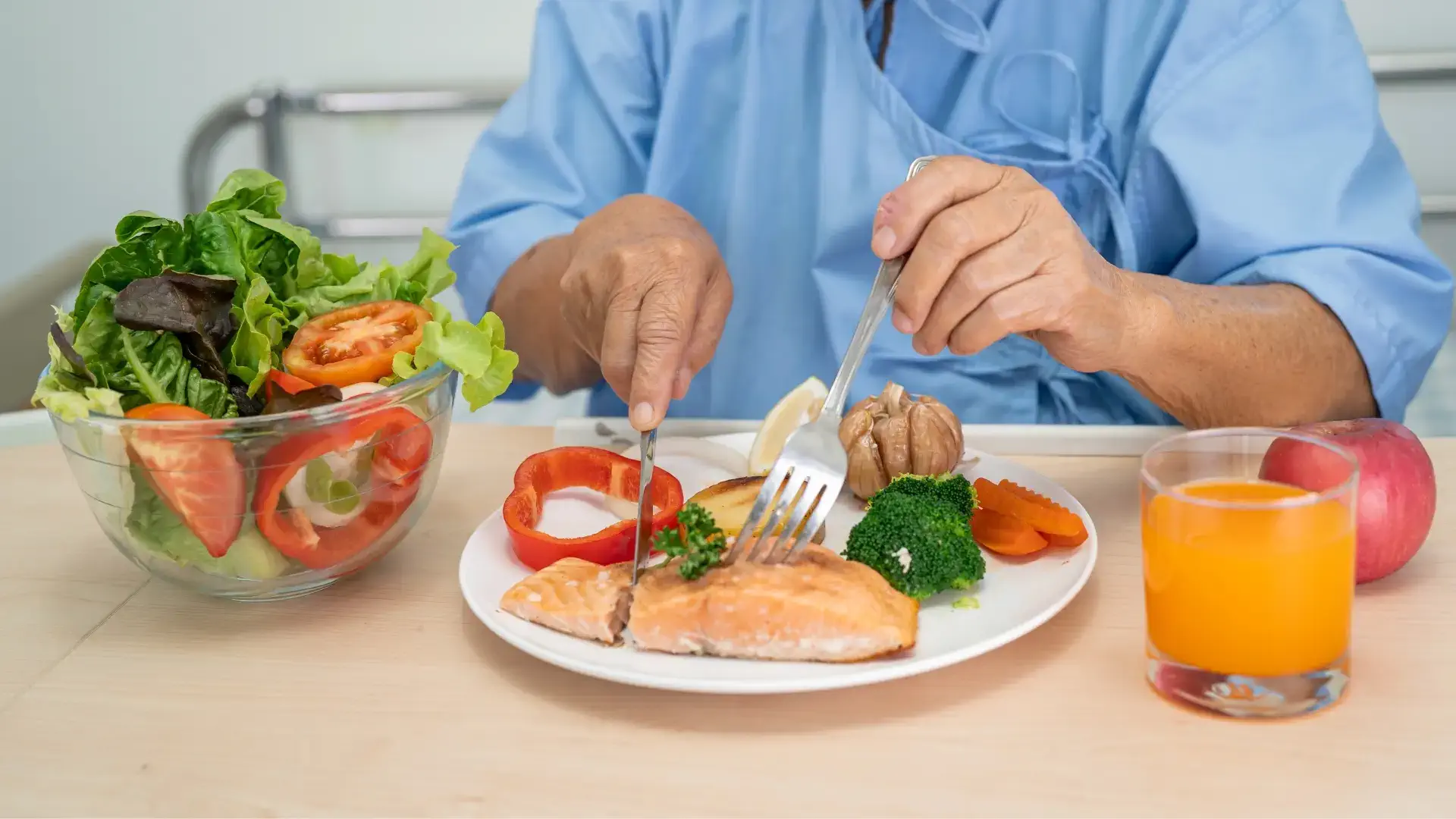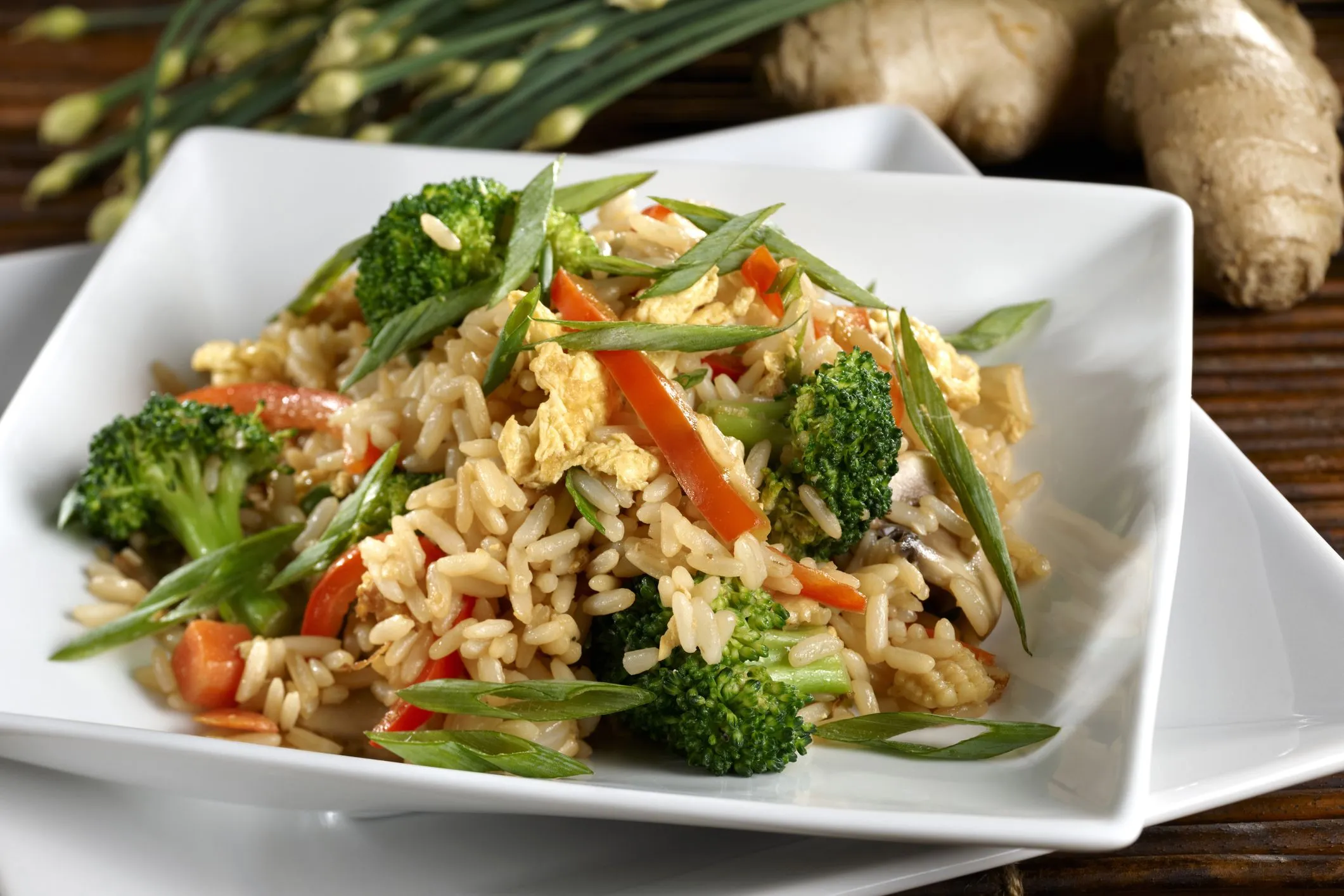
High Protein Soft Foods for Elderly + Benefits & Tips
In this article from humanhealthmag, we will examine the importance of consuming high protein soft foods for elderly. We will also introduce a wide range of these foods and their benefits for the health of the elderly. Protein is an essential micronutrient. Our body, including skin, hair, nails, hemoglobin, etc., requires sufficient amounts of it to maintain healthy body function.
As we know, the nutritional needs of the body change with age. As we get older, we lose skeletal muscle mass and strength. age-related progressive loss of muscle mass and strength is an involuntary process, which is called sarcopenia. Therefore, one of the nutritional challenges in the elderly is to maintain muscle mass and prevent its deterioration. Protein, as the main element of muscle structure, plays a very important role in this regard. On the other hand, considering the changes that occur in the digestive system of the elderly, consuming easy to swallow foods for elderly becomes particularly important.
Why Do Seniors Need Protein?
Protein is involved in many physiological processes that are important for maintaining good health. For example, hemoglobin, a type of protein, helps transport blood throughout the body. Similarly, lactose and sucrose aid in sugar digestion. However, the most important benefit of protein for older adults is in maintaining muscle mass and strength. Research shows that increasing protein consumption, for example through high protein soft foods for elderly, can help reduce sarcopenia in the elderly and help them lead an independent life. During aging, we not only lose muscle mass, but also tend to lose strength. This can have adverse effects on the health of older adults, leading to:
- Disability
- Increased risk of falls
- Two or more acute and chronic conditions
- Rheumatoid arthritis (chronic joint pain)
- Obesity
- Increased risk of cardiovascular disease

In addition to reducing sarcopenia, protein in the elderly helps:
- A major part of the skin, hair and nails consists of a protein called keratin. Including dietary protein in the diet of the elderly can help maintain their hair, skin and nails.
- Protein-rich foods are satiating and can keep the elderly full for longer and prevent snacking or overeating. This helps in weight management.
- Research shows that increasing protein intake in older adults increases calcium absorption.
- Maintaining cardiovascular function is another benefit of protein intake in older adults. Increased dietary protein intake among women has been associated with a lower risk of ischemic heart disease.
High Protein Soft Foods for Elderly
Now that we understand that seniors need high amounts of protein to maintain muscle mass and improve their quality of life, let’s look at where they can get it from. There are both plant and animal sources from which seniors can get their dietary protein. Here are some high protein soft foods for the elderly:
1- Eggs
- Benefits: A complete source of protein and can be prepared in a variety of ways (boiled, fried, omelette).
- Tips: People with high cholesterol should be careful about consuming egg yolks.
Eggs are an excellent source of protein. In addition to protein, they contain other nutrients such as choline, vitamin A, vitamin D, selenium, etc. that protect against chronic diseases. Research also shows that eggs protect against sarcopenia.
2- Skinless, fat free chicken
- Benefits: High in protein and low in fat. It can be consumed baked, broiled, or grilled.
- Tips: It is better to use chicken breast.
Chicken breast is a rich source of protein. Each 100 grams of chicken can contain up to 30 grams (g) of protein. It is an excellent source of protein for non-vegetarian seniors. Other chicken cuts, such as thighs, are also good sources of protein.

3– Fish
- Benefits: A great source of lean, easily digestible protein. It is also rich in omega-3 fatty acids, which are good for heart health.
- Examples: Salmon, shrimp, tuna, and crab
Fish is a great example of a high protein soft foods for elderly. Although edible fish vary in their protein content, it can reach 30 grams or more per 100 grams of fish. Once cooked or grilled, fish is easy to chew and digest. Salmon, shrimp, tuna, and crab contain significant amounts of protein.
4- Nuts and Seeds
- Benefits: In addition to protein, they contain healthy fats, fiber, and vitamins.
- Tips: Although these items are not among soft foods, we mention them in this article because of their high protein.
Almonds, cashews, pistachios and other nuts are good sources of protein and healthy fats. They help reduce the risk of heart disease. 100 grams of almonds contain 21 grams of protein. These can be added to sprout salads and other plant-based diets.
100 grams of raw peanuts can contain 25 grams of protein, making it one of the best high-protein foods for seniors. Peanuts can be eaten separately as a snack or added to meals like flattened rice (Poha), upma, etc. Peanut butter is also very popular in the health and wellness community and among athletes due to its high protein content. A cup of peanut butter on a piece of bread can make you feel fuller for a longer period of time due to its high protein content.
Pumpkin seeds, flax seeds, sunflower seeds, sesame seeds, chia seeds and many other seeds contain a significant amount of protein. 100 grams of chia seeds contain 16.5 grams of protein. 100 grams of roasted pumpkin seeds contain 29.8 grams of protein 14 and more. Other grains are equally high in protein. These seeds can be consumed as a snack or mixed with salads, desserts, etc.

5- Soups and purees
- Benefits: They have a soft, digestible texture and can be enriched with a variety of proteins (chicken, fish, legumes).
- Tips: Use soft and cooked vegetables in preparing soups and puree food for elderly.
Soups and high calorie pureed foods for adults are a great choice for seniors because of their soft and digestible texture. Soups and purees are a great choice for seniors because of their soft and digestible texture. These foods are easy to chew and swallow and are an ideal option for people who have difficulty chewing or swallowing. In addition, soups and purees can be fortified with a variety of proteins, such as cooked chicken, fish, beans, and lentils, to meet the body’s protein needs. These foods can also contain plenty of cooked vegetables, which are a rich source of vitamins, minerals, and fiber. By adding spices and aromatic herbs, you can give a pleasant taste to soups and purees and stimulate the appetite of the elderly. Want to learn some tricks to stimulate appetite in the elderly, click!
6– Greek Yogurt
- Benefits: It is very high in protein and because of its thick texture, it makes you feel fuller.
- Tips: You can add fruit, nuts, or honey to Greek yogurt.
Greek yogurt is essentially the same as regular yogurt, only at the end, the yogurt is strained to remove excess whey and create a thicker product. It is a great choice as a high protein soft food for seniors. Due to its special production process, this type of yogurt has a much higher protein content than regular yogurt. The protein in Greek yogurt helps maintain muscle mass, strengthen the immune system, and feel full for a long time. In addition to protein, Greek yogurt is rich in calcium, which is essential for healthy bones and teeth. The thick and creamy texture of Greek yogurt makes it a delicious and healthy snack or breakfast.
Concluding Remarks
In conclusion, it can be said that consuming high-calorie, high-protein, soft diet plays a very important role in maintaining health and improving the quality of life of the elderly. These foods are easily chewed and swallowed by the elderly due to their soft and digestible texture and meet the body’s protein needs. Protein helps maintain muscle mass, strengthen the immune system and improve overall body function. By choosing high protein soft foods for elderly from different food groups, a healthy and tasty diet can be provided for them. Of course, before making any changes to the diet, it is better to consult a doctor or nutritionist.

High Protein Soft Foods for Elderly Frequently Asked Questions
How Much Protein is Required During Aging?
According to the Food and Nutrition Board, the recommended daily allowance (RDA) for protein for seniors (age 65 and older) is 0.80 g/kg/day. However, several research studies suggest a higher dietary protein intake (1.2 g/kg to 2.0 g/kg/day) for older adults.
Why Do Older People Need More Protein Rich Foods?
As you get older, changes occur in your body that affect your ability to chew and digest food. Also, loss of muscle mass is a common problem in seniors. Soft and protein-rich foods are easily chewed and swallowed by the elderly due to their soft and digestible texture. The protein in these foods also helps to maintain muscle mass, strengthen the immune system and improve the overall body function.
How to Make High Protein Soft Foods for Elderly Tasty?
In order for the elderly to enjoy eating soft and protein-rich foods, various methods can be used to improve their taste and appearance. Adding aromatic spices and herbs, using healthy sauces and condiments, and combining different foods can help. Also, serving food in an attractive and colorful way can stimulate the appetite of the elderly.
